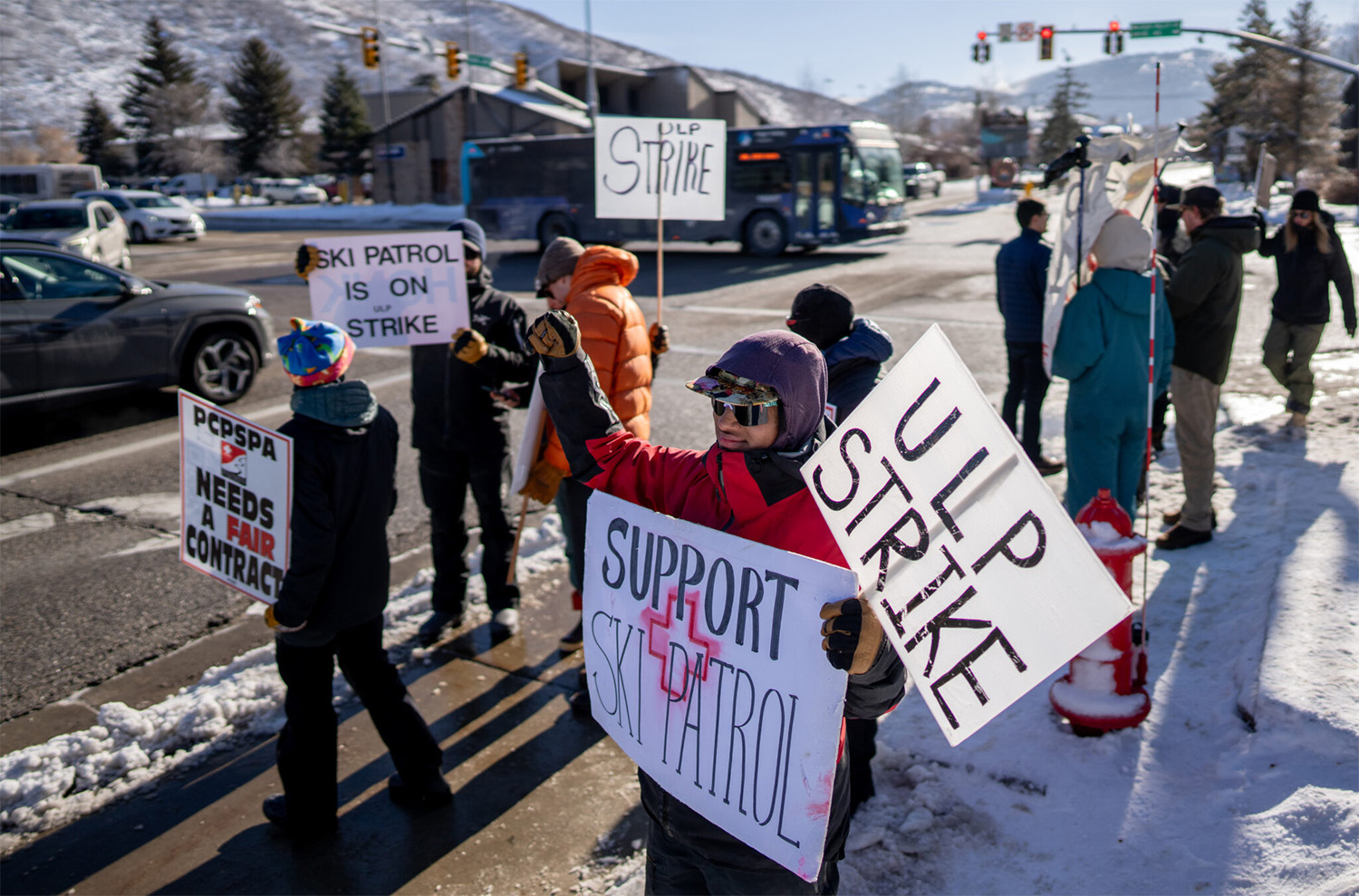Leave a rating and / or review in the Apple Podcast app or on the Spotify app.
This free, 30-second action on your part lets us know you value all the time & energy that goes into producing & publishing the Blister Podcast, and it ensures that we can keep the show going.
How to Leave a Rating / Review on Apple Podcasts
- Open the Apple Podcast App
- (if you’re on your phone, simply click this link)
- Go to the icons at the bottom of the screen and choose “search”
- Search for “Blister Podcast”
- Click on the SHOW — *not* the specific episode
- Scroll down to “Ratings and Reviews”
- Click on “Tap to Rate” and leave us a 5-Star Rating!
- Below that, you can click Write a Review if you’d like to share a few words
How to Leave a Rating on Spotify
- Currently, you can only rate a podcast in the Spotify mobile app
- (if you’re on your phone, simply click this link)
- Navigate to the Blister Podcast show on Spotify (not to a specific episode)
- Tap the star icon underneath the podcast description and if you like the show, leave a 5-star rating
- On Spotify, you need to listen to at least one episode before you can rate a podcast.
Cody and I are back to review some of the big news of December and this new year; rate your takes; share what we’re reading & watching; and more.
RELATED LINKS:
Taos Ski Valley
Join Us! Blister Summit 2025
Get Yourself Covered: BLISTER+
TOPICS & TIMES:
Catching Up: AK, the NFL, Etc (3:00)
The Explore Act Passed (8:00)
United Healthcare CEO Assassination (16:05)
Murder Hornets (33:49)
Park City Ski Patrol Strike (35:41)
Rate My Take (1:01:32)
What We’re Reading & Watching (1:09:13)








I was pretty stunned by the Cody/Jonathan “Murder is wrong, but…” segment. So messed up in so many ways that I don’t even know where to begin.
I have complex emotions about this. When I first heard about the shooting my initial reaction was a combination of two things:
1. Too bad he didn’t live long enough to have his claim for gunshot would treatment denied due to lack of preauthorization.
2. Society is disintegrating and it sucks.
Cody is right that we condone and celebrate murders and violence perpetrated on our behalf all the time. That’s at the very heard of what a government does – It exercises a monopoly on violence to protect us via defense, policing, incarceration, etc.
I think that the reason Mangione triggered the reaction he did is because almost everybody recognized that health insurance companies have literally been getting away with murder, and our government has not exercised its monopoly on force to stop it (for example by punishing insurance execs for the excess mortality they cause), and shows no intent to do so. Those are precisely the conditions under which widespread support for this sort of vigilantism has historically occurred and will continue to occur.
Agree 100%. I mean, Bin Laden was an unrepentant terrorist who admitted to being the master-mind of 911, taking 3,000 innocent lives in the most horrific way. He was not going to be taken alive. He died in a heavily- armed compound, surrounded by guards and had an assault rifle on him when he was zeroed. No trial by jury required, nor even possible. Brian Thompson was unarmed and cowardly shot in the back, alone on a public sidewalk. What healthcare companies do is often unethical, but at this time not illegal. There is simply no justifiable comparison between Bin Laden and Thompson.
You can’t even really claim that healthcare companies are “killing people”, as many of the ailments are a result of the poor health choices of the ones in need of care. Thompson’s alleged killer suffered greatly from a back injury sustained while surfing. Is the healthcare industry really 100% on the hook to fix that? Isn’t that just the chance we take with risky lifestyles? Where is the personal responsibility? And how many people does the government “kill” every year by allowing so much sugar, preservatives and harmful chemical food colorings, etc. to be in our food chain?
The alleged killer could have just dowsed Thomson in red paint (signifying blood) or something to get the public’s attention (still not justifiable, but to a lessor degree) and an innocent husband and father would still be alive today, hopefully having humbly learned a lesson.
‘You can’t even really claim that healthcare companies are “killing people”, as many of the ailments are a result of the poor health choices of the ones in need of care.’
Many of the ailments are not a result of any particular health choice either. Are we somehow blaming people for getting type I diabetes, or breast cancer, or any number of other illnesses that are more a result of our genes or happenstance than any particular lifestyle choice? Insurance is a service that we pay for monthly on the wish that our medical bills, for whatever reason, won’t bankrupt us, and UHC has a history of denying coverage with dodgy medical justification. For as morally repugnant as the UHC CEO’s murder is, I can’t help but empathize with the anger surrounding the perceived greed of the healthcare industry right now.
As someone who recently lost a close relative to blood cancer, has a bad neck due to being run down by a pickup while riding my bicycle to work, etc, I find your characterization of how people get chronic health conditions to be a disgustingly dishonest strawman. Moral hazard is a problem, but it’s far from being the main problem in our health system as you pretend.
I also think that it’s very easy to make the case that improper claim rejections unjustly kill far more Americans every year than Bin Laden ever did.
What you say about what UHC doing being legal is currently true, but I think that the widespread support for Mangione is telling us something important about whether people believe it should be. When the government has been corrupted to the point where popular will is thwarted to that degree vigilantism is one of the common responses.
I think that you would be on more solid ground by focusing on the morality (or lack thereof) of what Mangione did rather than fixating on legality. These are separate things, as laws have a tendency to be unjust or otherwise wrong.
A few remarks:
While I generally agreed with everything Cody said about UHC/Mangione, there was one thing that raised the hairs on the back of my neck, that being idea of judging Mangione’s actions by their long-term societal impact. To me that seemed to suggest judging the means by the ultimate ends, which seems Ethically Problematic ™. Perhaps I misunderstood, though, and you wanted to wait for more information about the act itself?
About the idea that “violence is never the answer”, Cody raises a key point: As many have observed, one of the key attributes of a modern state is that it exercises a monopoly on the use of force, whether in the form of sending Seal Team 6 to Abbottabad or sending lawbreakers to prison. Vigilantism happens when people are _really_ unhappy with how the state exercises that monopoly, for example by not punishing the “structural violence” (not my term, but I like it) by which health insurance companies kill tens of thousands a year. As justifications for vigilantism go that’s far from the worst IMO [*], but I also think that it reflects an ongoing disintegration of society and isn’t a good thing.
wrt the Park City strike, it seems clear to me (from having read a bit) that Vail waited to schedule negotiations until the holiday season in a blatant attempt to prevent the strike (or at least give themselves a favorable argument to make in the media). If they had been serious about avoiding holiday disruption they would have dealt with this in the preceding 8 months since the previous contract elapsed.
[*] That honor belongs to the depressingly common “the government doesn’t use enough violence against the race/sexuality/etc that I think it should”
PS – Bob Dylan has always struck me as a bit of an ex-folkie blowhard, and some of his work from his “Christian phase” really turns me off.
But then again I’ve never really listened to music for the lyrics, so I’m inherently biased. I think Jonathan and I have very different artistic value systems.
When factored in, the total ask is 3.5% of profits on MTN (Vail Resorts) to one mountain’s patrol. They are also asking for year round healthcare and rejecting offers for summer work. And also very long parental leave which can be taken in the high season to completely mess up ski season. Also the $2 raise isn’t the issue. The issue is also less wage compression at the higher ranks so the 10 year patroller isn’t making $5 more than the new guy. So talking about the $2 is disingenuous. Try asking patrol what they want the max wage for the 20 year patroller to be compared to now. You’ll get a lot more insight than the soundbite media wars. I’ve also been following this strike as someone whose skied PCMR during the strike, and as an investor and reading the earnings reports and looking at the math and what has been put out. And I’ve worked marketing so using the $2 tagline is great for ski patrol. My fear is the longer they hold out, the more time Vail has to hire new guys to get comfortable with the terrain and they already got through the holidays. I don’t think Vail is saying no to $2. I think they are saying no to 3.5% of total profit, not PCMR profit. Do the math and rough in $7 an hour per patroller. And only one resort when other resorts would surely follow suit and domino.
I’m sorry, but unless I’m grossly missing something, the numbers you are saying do not add up at all. Vail Resorts had a gross profit of ~1.225 billion dollars, of which 3% would be roughly 36,675,000 dollars. Because ski patrollers are hourly, they are not guaranteed to be paid for the entirety of the season, just the days they work, but let’s assume they do. PCPSPA represents 204 ski patrollers. Let’s assume that they all work every day, 12-hour days, and that the season is 140 days long (roughly the average length of the season at Park City). Collectively, that would mean that their average per-hour pay under what you claim is the proposal is ~107 dollars an hour, or annually amounting to a >200,000 dollar annual salary, if they worked the entire year. This is being significantly generous to your supposed 3.5% of profits.
The union is also not asking for year-round insurance, but a stipend to maintain the same insurance so as to meet deductibles easier, instead of being on whatever insurance Vail forces down their throats for the duration of their seasonal employ, and then acquiring whatever other insurance during the off-season. Coupled with FTO and child care benefits, I’m still having a hard time seeing this supposed 3.5% of profits.
You’re using gross profit (before non-operating expenses), while I suspect that Brenda is using net profits. Vail Corp’s net profit for 2024 was $240M.
Of course those non-operating expenses are after taxes, while salaries are pre-tax (patroller salaries would be counted as an operational expense, aka OpEx). Non-operating expenses also include other “questionable” things like executive compensation.
To be clear, I’m not a fan of Vail Corp and generally support the patrollers here, but they way you did the math doesn’t make any sense at all.
I stand corrected then for grossly missing the difference between gross and net.
Jonathan – I’m not sure how people planning a trip 6 months out are supposed to know that Vail would tell, one of, if not the most important group to mountain operations that they can pound sand and assumed ski patrol would cave before the holidays. Vail ruined peoples vacations at one of their biggest and most marketed resorts and it is somehow the consumers fault for wanting to go to PCMR? I say this because Vail knew what was about to happen and the consumer didn’t. How could they? Vail offers and promises an experience, there are things outside of Vails control to guarantee that experience, but this isn’t one of them. How would any know this wouldn’t have happened at a smaller resort?
Maybe I took what you said wrong, but people were not complaining about a fully operational resort that was crowded. They are upset that a company sold them a product and regardless of a small group of people striking, did nothing to make sure the product they sold hit an adequate expectation of the consumer. I might be more on your side if Vail’s business model didn’t force consumers to make these decisions 6-8 mounts out. Maybe I missed it but I don’t think Vail made any attempt to educate their customers on what was happening and what the result could be.
I don’t care much about the details around the strike. Ski patrol has a niche skill set that only a small percentage of people are willing to do and that is their power. I’m glad they are using it. Vail and other companies use the love people have for certain activities or careers to under pay groups like ski patrol and it’s sad. Vail’s only concern is getting the most money to their shareholders like all publicly traded companies. So, as a worker, if you do not use the power you have to demand a salary that meets the minimal wage it takes to survive in these communities Vail will be fine with you starving to make wall street smile.
I don’t feel bad that someone was killed that is responsible for thousands of deaths. Especially when a lot of those people paid a significant portion of their livelihood to his company and relied on them to keep them healthy and alive. Just because someone gets to hide behind a desk and title doesn’t mean they are not responsible.
I’m headed out to CB for the Alley Loop and a few days of skiing (bought a 4 pack). I hope I didn’t mess up by going to a smaller resort to find out CBSP joined the strike… :)
I appreciate the POD! Keep it up good sirs!
Thanks, Steven. And to try to set the record straight, that was not the point I was making. I was making the more general point that it surprises me that people continue to visit the busiest ski areas out there especially during the busiest times of the year. (And I’m not talking about PCMR here.) One partial solution to the ‘overcrowded’ problem is for people to branch out a bit, check out some other ski areas during those highest-traffic times. This isn’t an option for everyone, of course, but it is for some.
Yeah. I was just having lunch with a colleague who is an intermediate skier, and her family are beinner-to-intermediate. She was complaining about the cost and hassle of planning a vacation to Palisades, and I basically blurted out “why on Earth are you going _there_? you’re just going to end up hating life on the Mountain Run”.
I skiied Palisades a lot in my teens and twenties and still love it, but there are still a lot of mid-size resorts, many of which are still privately owned, that are honestly a better fit for people like that. My favorite like that in Tahoe is Sugar Bowl (and I was there last weekend and watched the FWQ 2*), but even that is “overkill” for many.
I will remark that Park City is sort of a special case as a “see and be seen” destination. I guess Palisades is, too, if you’re one of the 100 listeners and want to catch sight of Cody in the village.
Cody’s discussion of Mangione and the U.S. healthcare system is deeply troubling.
1. Publicly celebrating the cold blooded murder of the United Healthcare CEO is morally wrong. Full stop. To be clear, “celebrating” is different than indifference to someone being murdered, and also different than agreeing with the motivations that led to the murder. The analogy to Bin Laden is a poor one. Bin Laden was being hunted by the government for killing 3,000 Americans. he was killed by the United States military in an effort that had been approved by all three branches of the U.S. government. The operation was within the laws of war and the government was accountable to the U.S. electorate.
Mangione by contrast, did not operate under any legal framework and was accountable only to himself. He killed a fellow citizen who was operating wholly within the law of the United States. The fact that a lot of people feel the murdered was justified does not make it something to celebrate. Many people in the United States make decisions that lead to the life or death of others (think politicians, public servants, law enforcement, fire, etc.) Just because you disagree with those decisions doesn’t mean you get to murder them. Rather, you should mourn the fact that something is broken enough in the system that someone who you feel was justifiably killed did not face legal consequences/scrutiny.
2. The healthcare issue is not an easy one. If you switch to a government single payer system the problems with denial of service do not suddenly go away. Just look at Canada and Britain, where people regularly wait months for simple things like getting an MRI, and people regularly die due to having to wait months and months due to shortages of doctors. In the U.S., you can almost always find care, you just cannot necessarily get your insurance company to cover it. In Britain and Canada, you don’t have to pay for care, but you have to wait for it – and often too long. At base, healthcare is a good with limited supply and unlimited demand. The question is whether you want to apportion that supply based on ability to pay or time spent waiting (or some combination).
Clearly improvements in the U.S. system can be made. The fact that not paying claims is the best way for insurance companies to increase their bottom line represents a profound conflict of interest with their clients. But murdering the CEO’s of those companies is not the answer. Rather, the laws need to be changed to bring the insurer’s incentives in line with the insured.
Thanks for the thoughtful reply. I won’t debate the fact that laws of war that govern the “lawful” killing of Bin Laden are written by those with a monopoly on violence and who often believe violence is not only the answer, but something to be celebrated, but the main fascination is that a majority of Americans are supportive of the motivation for the UHC CEO’s murder and lay blame primarily at the foot of UHC’s actions. It’s not that our healthcare needs tweaks, it is fundamentally broken when a majority of Americans don’t share your sentiment. To me, that’s fascinating. Oh and of course, UK, Canada and France have issues with healthcare, but choosing death or bankruptcy, debt passed onto generations and months and years wasted navigating a Byzantine healthcare system is a choice none of the citizens of those countries have to make. The number one cause of bankruptcy in the US is healthcare, that to me is an unacceptable form of healthcare run under neoliberal capitalism ideals.
I think this might be one of the best episodes yet.
We’re entering a very interesting time, the outrage of the populace is boiling over while the self interested billionaire right has just been put in charge of the executive and legislative branches. It would be a shock to me if this murder makes a change in the way corporations do business, although it may be widely supported by the working class, the right has been trying to dismantle Obamacare for years.
After living out my idealistic dreams in the mountains and piecing together a lifestyle for a number of years, I watched the political environment around me and observed that our country wasn’t moving towards a more equitable system, the safety net I desired to freelance my way through life was nonexistent. I went back to school and got a job in a traditional field that has health insurance. I watched as Obamacare got passed and saved a number of my dirtbag friends from medical bankruptcy or death due to lack of care. Although the system is far from perfect, it does work a lot better than it did 15 or 20 years ago, back when you couldn’t get insurance if you had anything wrong with you (pre existing condition). And although you may not be able to live the freewheeling life of your dreams and have amazing affordable healthcare, you can make a few sacrifices and have good healthcare.
I wish it were better, but an isolated killing isn’t going to solve a thing. Mangione is a murderer plain and simple. He’s as complicit as Netanyahu, Bush, Putin, and the rest.
About healthcare, I recently stumbled upon this great article: https://www.noahpinion.blog/p/insurance-companies-arent-the-main which gives interesting insights on the whole industry beyond insurers.
I live in Switzerland where the healthcare system has some (I insist on some) similarities with the US system and we face similar challenges or questions, but where the supply side is also looked at critically, because it is an integral part of the system and where the money ultimately goes into.